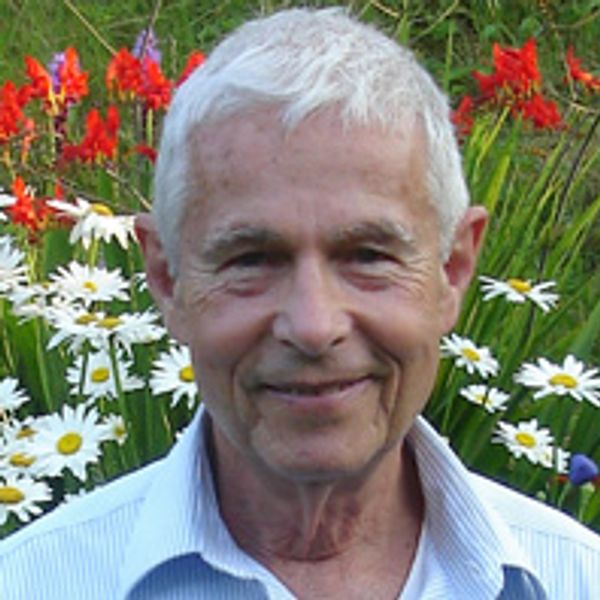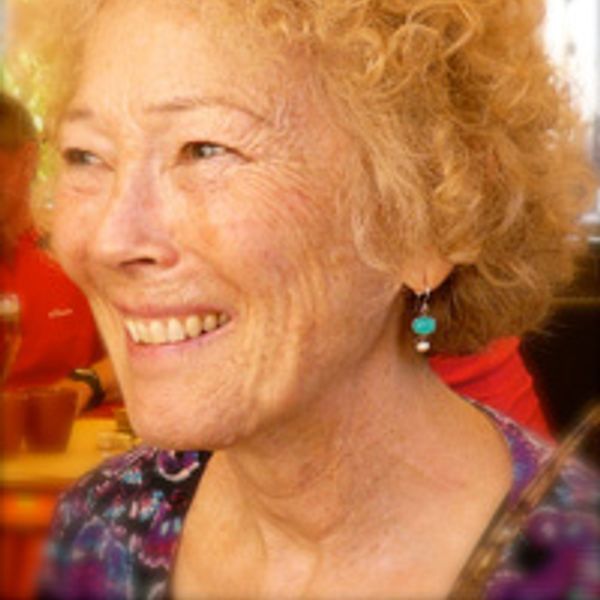Art by Jin Suk
Two Introductions
I
We celebrate in this double issue the fifteenth anniversary of The Agni Review. I wanted to bring together work that typifies what Agni has been and is foremost—a journal highlighting promising young writers. And, indeed, in this issue there are many fresh voices—Kate Blackwell and Suzanne Gardinier, Wayne Koestenbaum and Marie Howe, to name only a few. It has been a special pleasure to gather a sampler of current work from past Agni Feature Poets. In almost every issue since Agni 4 we have showcased a poet whose work we considered outstanding and who hadn’t yet published a book. So many of our Feature Poets have gone on to those first books, and more: Herbert Morris, Edward Hirsch, Jane Miller, Jordan Smith—again, to name only a few. And we are happy to add to our Feature Poet roster, this issue’s, Lucie Brock-Broido.
I have gathered the poetry for this issue, while John Clayton has chosen the fourteen pieces of fiction—his remarks about his selection follow these. In addition to the Feature Poets, we’ve welcomed back many favorite Agni contributors—David Bosworth, Paul Mariani, William Logan, Debora Greger, Scott Ruescher and more. This issue also marks ten years of my editing Agni—a rich ten years, the richest yet.
Sharon Dunn
II
When I began reading fiction for this issue, the word maximalism—the negation of a dreary minimalism—kept coming to mind as a kind of banner to wave. But soon I realized that all slogans were forced and false; I didn’t want to wave any banners. Wouldn’t I have jumped at a wonderful story by Raymond Carver, even though his style feels utterly alien to my sensibility? Looking at our final choices—a selection of fourteen stories arrived at with the help of a number of fiction readers and the Editor, Sharon Dunn—I can only come up with this: we were looking for fiction that (1) isn’t afraid to express heart, and (2) has a quality of mysterious fullness.
Heart: There’s nothing “cool” about this fiction. It may be about isolated people, like Arturo Vivante’s narrator in “Night in the Piazza” or Nancy, in Valeri Cornell’s “The Music Student,” but they express the pain of that isolation. There’s no hip deadness, emotional blankness—which is, I think, psychological defense posing as post-modern style. None of these stories are, I hope, simplistic or corny; but none of them are afraid to express yearning or the pain of loss or tenderness or fear. I’m thinking of the strange tenderness of father for daughter at the end of Deborah Corey’s “Sister” or the rage and love of the husband whose wife is dying, in Kate Blackwell’s “Yodeling.”
Fullness: Some of the stories are neatly structured, some seem to sprawl. But both kinds make the reader strain after closure. They vibrate out beyond surface conflicts and continue to vibrate after the story is done. It’s their mystery, their strange fullness, that give them life. Lucy Honig’s “No Friends, All Strangers” seems close to bursting with life. It takes risks with chaos and sentimentality—and succeeds gorgeously. Half of New York City seems to be riding in the subway car with Honig’s narrator. I’m riding, too. Reading her story, or David Loui’s strange, sad, comic story about the love of a would-be father for an almost-son, I keep saying, “It’s like that for me, too—being alive.” The fiction in this issue does that for me—awakens my own life, parts of my life I wasn’t quite aware I was living. Reading “The Eloquence of Light” by Pat O’Donnell, I feel that her sense of the mysterious conjunction of moments and lives—the “dance”—is my dance, too, and my own chest fills with the breath of her yearning. The pressure of all the life she needs to press into a small form! I feel the truth of that need. Grace Paley once said that a good short story contains the world. Maybe it doesn’t, but it can contain the longing to contain the world, to hold it to your body and make it pulse with your heart.
John J. Clayton

John J. Clayton
John J. Clayton is the author of Parkinson’s Blues & Other Stories of My Life (Paragon Press, 2019). His collections of fiction include Minyan: Ten Interwoven Stories (Paragon, 2016), Many Seconds into the Future (Texas Tech University Press, 2014), and Radiance: Ten Stories, which won the Ohio State University award in short fiction and was a finalist for the National Jewish Book Award. Its title story, “The Man Who Could See Radiance,” was read at Symphony Space in New York and has been aired on NPR’s Selected Shorts series. His fiction has been reprinted in The O. Henry Prize Stories, The Best American Short Stories, and The Pushcart Prize. He has published four novels: Mitzvah Man (Texas Tech, 2011), Kuperman’s Fire, The Man I Never Wanted to Be, and What Are Friends For? Clayton has also written about modern fiction, including Saul Bellow: In Defense of Man and Gestures of Healing, a psychological study of modern British and American fiction. He is professor emeritus at University of Massachusetts and lives with his wife, Sharon Dunn, in Western Massachusetts and Cape Cod. www.johnjclayton.com. (updated 11/2019)
His AGNI Online story “Light at the End of the Tunnel” was named one of the Top Ten Online Stories of 2005 by storySouth.

Sharon Dunn
Sharon Dunn is the author of An Island in Time: Exploring Bound Brook Island, Its Land & People, Its Past & Its Present (The Rose Press, 2022); a memoir, Under a Dark Eye: A Family Story (Texas Tech University Press, 2017); the poetry collection Refugees in the Garden (The Rose Press, 2009); and the chapbook My Brother and I (Finishing Line Press, 2012). She lives in western Massachusetts and Cape Cod. (updated 4/2022)
Sharon Dunn was coeditor of AGNI from #7 (1977) to #10/11 (1979); she was editor of the magazine from #12 (1980) to #24/25 (1987); and she served as executive editor from #26 (1988) until #36 (1992).
